
-
Find the right food for your petTake this quiz to see which food may be the best for your furry friend.Find the right food for your petTake this quiz to see which food may be the best for your furry friend.Health CategoryFeatured products
 Adult Light Large Breed Chicken Meal & Barley Recipe Dog Food
Adult Light Large Breed Chicken Meal & Barley Recipe Dog FoodFewer calories for less active large breed dogs
Shop Now Hill's Science Diet Adult Healthy Mobility Large Breed Chicken Meal, Barley & Brown Rice Recipe Dog Food
Hill's Science Diet Adult Healthy Mobility Large Breed Chicken Meal, Barley & Brown Rice Recipe Dog FoodAdvanced nutrition shown to support joint health and improve mobility
Shop Now Adult Large Breed Chicken & Barley Recipe Dog Food
Adult Large Breed Chicken & Barley Recipe Dog FoodSupports healthy joints, lean muscle, and beautiful coat for large breed dogs
Shop NowFeatured products Adult Perfect Digestion Chicken, Barley & Whole Oats Recipe Cat Food
Adult Perfect Digestion Chicken, Barley & Whole Oats Recipe Cat FoodHill's Science Diet's breakthrough nutrition supports ultimate digestive well-being & healthy microbiome
Shop Now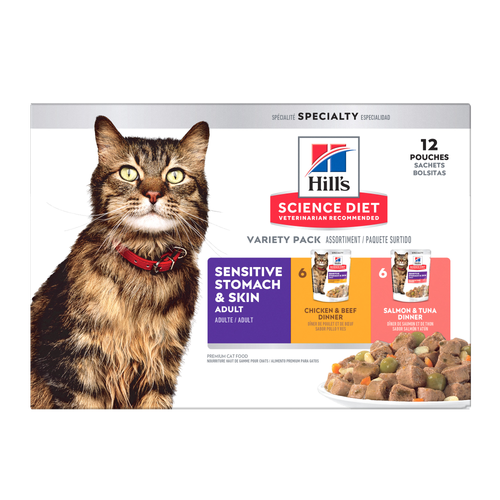 Adult Sensitive Stomach & Skin Pouch Variety 12 Pack Cat Food, Chicken & Beef, Salmon & Tuna
Adult Sensitive Stomach & Skin Pouch Variety 12 Pack Cat Food, Chicken & Beef, Salmon & TunaCarefully made, gourmet daily nutrition. Tasty chunks with Salmon & Tuna in a decadent gravy. Supports digestive health, nourishes skin and promotes a lustrous fur.
Shop Now Adult Oral Care Chicken & Brown Rice Recipe Cat Food
Adult Oral Care Chicken & Brown Rice Recipe Cat FoodClinically proven kibble technology to reduce plaque & tartar build-up
Shop Now -
DogCat
- Cat Tips & Articles
-
Health Category
- Weight
- Skin & Food Sensitivities
- Urinary
- Digestive
- Kidney
- Dental
- Serious Illness
-
Life Stage
- Kitten Nutrition
- Adult Nutrition
Featured articles Fun Ideas for Kids and Pets This Summer
Fun Ideas for Kids and Pets This SummerOutdoor summer activities with your dog or cat can be fun for kids, too. Learn how they also teach kids responsibility & creates a bond with their pet.
Read More Cat vs. Dog: Which Is the Best Pet for Me?
Cat vs. Dog: Which Is the Best Pet for Me?Learn about important differences between dogs and cats, such as cost & space considerations. These factors can help you decide which pet is best for you.
Read More Adopting a Pet: What You Need to Know
Adopting a Pet: What You Need to KnowLearn the basics of adopting a pet, including where to begin and common questions you should ask yourself when deciding which kind of pet is best for you.
Read More -


Dogs in heat
Female dogs are "in heat" when they have entered the fertile part of their reproductive cycle. A heat, on average, lasts for 3 weeks and a dog will usually go into heat every 6 to 8 months.
Most breeds have their first heat at about 6 months old but it may be earlier or later.
A heat can usually be identified when there is some bleeding from the vagina, a swollen vulva or increased urination. Female dogs do not produce very much blood, and in a small dog you may not even notice the bleeding.
Unwanted attention
The first thing you will notice if you have a bitch in heat is that she will attract un-castrated male dogs within a very large radius. Her behaviour will change too, so while she normally wouldn't let males mount her, she almost definitely will while in heat.
Additionally, male dogs will go to surprising lengths to get to a female in heat. While your bitch is in heat it's inadvisable to leave her unsupervised outside, and you'll need to keep her on the lead at all times while on walks. In general, other pet owners you encounter will be able to control their dogs, but the scent of a female in heat can cause aggressive behaviour in some dogs.


Tasty Tips
Bleeding
The second concern is bleeding. If your dog is producing enough blood to cause a mess you may want to restrict her to easy-to-clean, un-carpeted floors. Just leaving her outside is a bad idea unless you want her to have male visitors (and potentially puppies).
Unless you intend breeding, it is best to have her spayed. Spaying will prevent her from going into heat.
There is some debate about when it is best to spay your bitch. Some veterinarians will advise to let a dog have one heat while others will spay as early as 6 months. Ask your vet which course of action they think is right for your dog.


One of our staff authors prepared this article for you
Related products

Fewer calories for less active dogs

Supports healthy joints, lean muscle, and beautiful coat for large breed dogs

Advanced nutrition shown to support joint health and improve mobility

Fewer calories for less active large breed dogs
Related articles
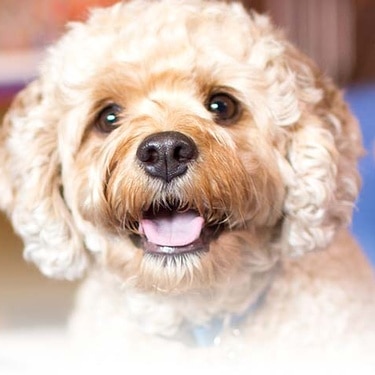
Learn about choosing the right dog food to help ensure your mature older dog will receive the correct balance of nutrition.
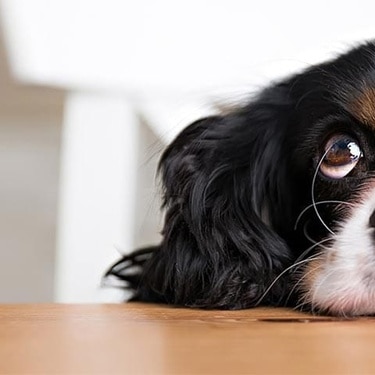
Learn how to stop your dog from begging at the dinner table, and understand how it can help contribute to his health.
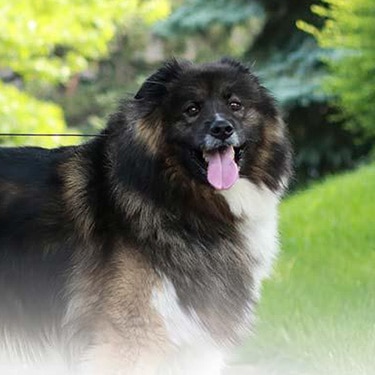
A little exercise can make a big difference. Not only will it enhance your pet’s health, but it will beef up your relationship as well.
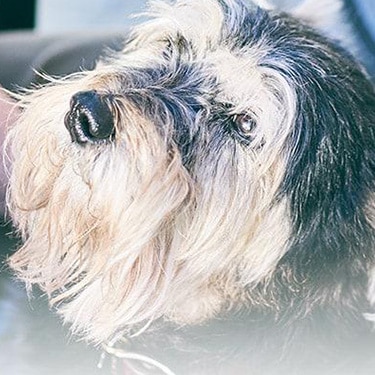
Though it may seem like your four-legged friend loves nothing more than to nap on the couch, dogs need regular exercise to stay healthy just like people do.

Put your dog on a diet without them knowing
Our low calorie formula helps you control your dog's weight. It's packed with high-quality protein for building lean muscles, and made with purposeful ingredients for a flavorful, nutritious meal. Clinically proven antioxidants, Vitamin C+E, help promote a healthy immune system.
Put your dog on a diet without them knowing
Our low calorie formula helps you control your dog's weight. It's packed with high-quality protein for building lean muscles, and made with purposeful ingredients for a flavorful, nutritious meal. Clinically proven antioxidants, Vitamin C+E, help promote a healthy immune system.

